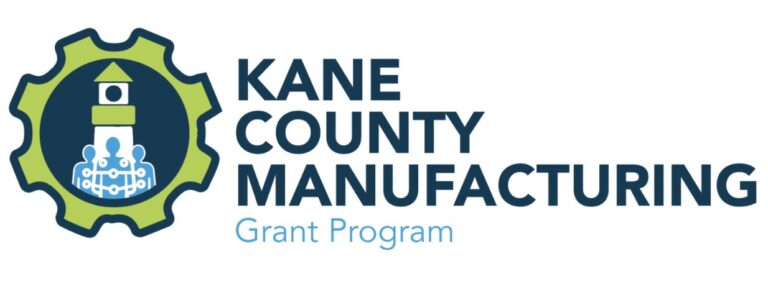Small and mid-size manufacturers are the foundation of American industry. They make up 99% of all manufacturing companies, provide good jobs in every community and anchor supply chain resilience. Yet, at a time when manufacturing is a national priority, many of these firms are under immense pressure.
A perfect storm of disruptions is hitting at once. There’s the ongoing labor shortage, with 400,000 manufacturing jobs currently unfilled and 3.8 million employees needed by 2033. There’s the swift rise of automation, with AI-powered systems enhancing many aspects of production. And there are the recent tariffs on steel, aluminum and other imports that will have an industrywide impact.
For smaller firms, the stakes are especially high. Unlike large corporations, these manufacturers often don’t have in-house specialists to handle supply chain redesigns, technology adoption or policy navigation. That’s where targeted public support — especially technical assistance programs — plays a crucial role.
Americans recognize vital role of manufacturing
State and federal policy that promotes technical assistance for these firms isn’t a handout; it’s a smart investment. Americans appreciate the importance of domestic manufacturing. Almost three-quarters of likely voters consider strengthening U.S. manufacturing a high priority, per a survey conducted this year by the American Small Manufacturers Coalition. And the vast majority (78%) of likely voters say they are more likely to favor Congressional candidates who support manufacturing.
Illinois has embraced a coordinated policy approach through its Economic Growth Plan, which focuses on wide range of growth sectors — from microelectronics to clean efficiency, advanced manufacturing and food processing. One example of this commitment is the Made in Illinois grant program, which provides funding for automation to improve productivity and prepares recipients for their companies to grow. With over 850 company applicants over the past two years, this program is supporting the adoption of vital new technologies.
Nationally, the U.S. Commerce Manufacturing Extension Partnership (MEP) is the only federal program dedicated to helping small and mid-size manufacturers modernize, reshore and grow. Since 1988, the MEP network has worked with over 154,000 manufacturers, leading to $148.7 billion in new sales and $31.6 billion in cost savings. This program has had tremendous impact, including right here in Illinois.
MEP centers such as Illinois’ IMEC provide manufacturers with deep industry expertise and insight on everything from the supply chain to workforce training to enterprise resource planning (ERP) selection. For instance, IMEC helps manufacturers assess different supply chain options so the companies can be “more nimble and more efficient,” says Scott Rempala, president of Waukegan, Ill.-based Mighty Hook, which makes hooks, racks and other products for about 2,200 customers, most of them in the U.S.
Such support is critical for small and mid-size manufacturers that do not have the resources to undertake every operational improvement on their own.
“IMEC is an essential resource for small to mid-size manufacturers. It’s been life-changing for a company like us,” says Rempala, who has about 40 employees. “And it’s the most important piece of the puzzle in increasing domestic manufacturing.”
But just as technical assistance proves its value, uncertainty is rising — especially around tariffs.
The toll that tariffs could take
When he first heard about the U.S. tariffs earlier this year, Alex Nadtochiy thought his Cary, Ill.-based company, General Assembly & Manufacturing, would be fairly immune. After all, most of General Assembly’s customers are located in the U.S.
But Nadtochiy soon realized that about 60% of General Assembly’s products, about half of which are medical devices, get exported to other countries. Fearing the fallout from tariffs, some of General Assembly’s customers, including companies not based in the U.S., have decided to take their manufacturing to other shores.
“This whole situation jolted our customers to take a look at their established supply chains and decide to not put themselves in jeopardy with the tariff games,” says Nadtochiy, General Assembly’s president. “Unfortunately, they decided to reshore their manufacturing outside of the U.S.”
The upshot for General Assembly? “We’re looking at the loss of 67% of the entire business,” Nadtochiy says.
What manufacturers need now
In this volatile environment, what small manufacturers need most is certainty — and a partner they can trust.
“IMEC has industry experts that can help us and that we can trust,” says Nadtochiy, who, along with Rempala, serves on the IMEC board. “U.S. manufacturers need that support if we want to remain competitive.”
Despite their track record, MEP centers like IMEC are facing funding uncertainty. In April, the federal government reversed a decision that would have eliminated funding for 10 state centers — but the remaining 40 are still on unstable footing, with contract renewals looming.
If the U.S. is serious about manufacturing competitiveness, the answer is clear: We need strong state and federal policies that fund the support systems already delivering results.
Small and mid-size manufacturers don’t need handouts. They need expert partners, stable investment and clear paths to growth.






